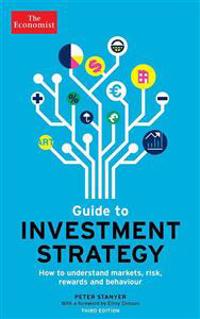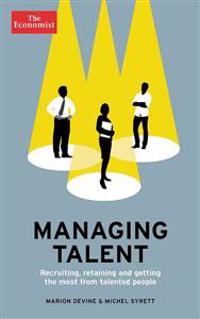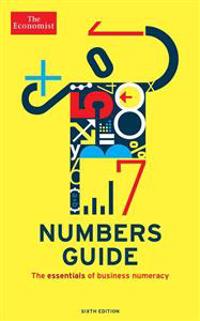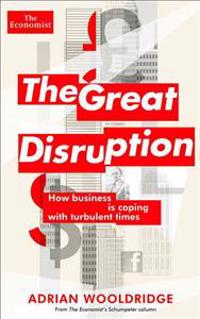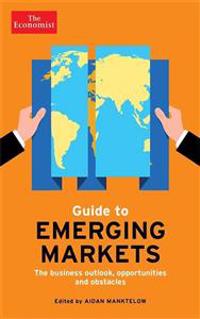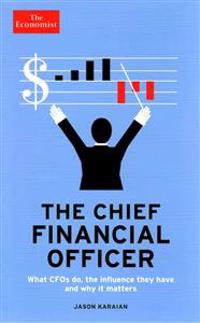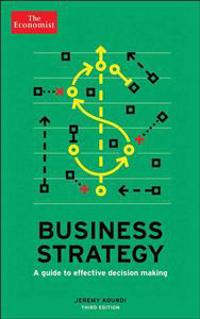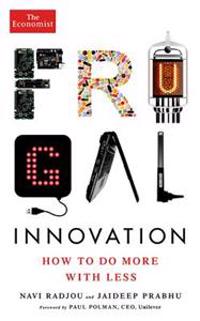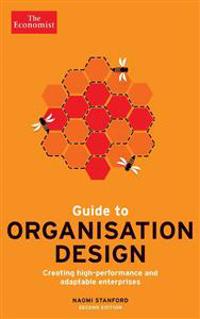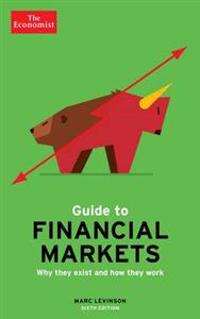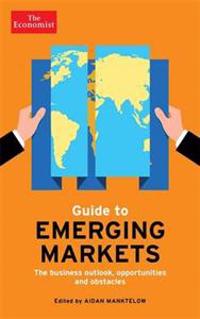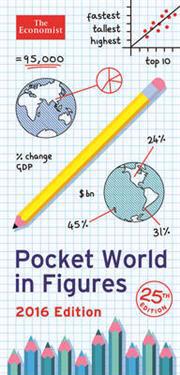The Economist Guide to Investment Strategy: How to Understand Markets, Risk, Rewards and Behaviour (Häftad)
avThe Economist, Peter Stanyer
ISBN: 9781610393911 - UTGIVEN: 2014-03Supported by numerous charts and detailed analysis, The Economist Guide to Investment Strategy outlines how to construct investment strategies appropriate for individual investors.
It looks at the risks and opportunities of uncomplicated strategies and it comes with wealth-warnings for those who[...]The Economist Style Guide (Häftad)
avThe Economist
ISBN: 9781781253120 - UTGIVEN: 2015-06Clear writing is the key to clear thinking. So think what you want to say, then say it as simply as possible. That's the thinking that underpins this much-loved guide, and the mantra for anyone wanting to communicate with the clarity, style and precision for which The Economist is renowned. The Eco[...]
The Economist Guide to Economic Indicators: Making Sense of Economics (Inbunden)
avEconomist
ISBN: 9780471248378 - UTGIVEN: 2005-01A blueprint for understanding economic information from all over the world. There is a critical need today for business executives, investors, and students to have a thorough knowledge of the economic indicators that are released every day and used throughout the world. This comprehensive primer add[...]
Economist Pocket World in Figures (Inbunden)
avThe Economist
ISBN: 9781781252734 - UTGIVEN: 2014-09The Economist: Economics (Häftad)
avEconomist
ISBN: 9781846684593 - UTGIVEN: 2011-03A radically revised new edition of this highly readable, popular guide aimed at everyone from students to statesmen who want to make sense of the modern economy and grasp how economic theory works in practice. It starts with the basics: what economics is about; the sources of economic growth such as[...]
The Economist Style Guide (Häftad)
avEconomist
ISBN: 9781846686061 - UTGIVEN: 201204This is the best selling guide to English usage, now in paperback. This expanded tenth edition of the bestselling guide to style is based on the "Economist's" own updated house style manual, and is an invaluable companion for everyone who wants to communicate with the clarity, style and precision fo[...]
Managing Talent: Recruiting, Retaining and Getting the Most from Talented People (Inbunden)
avThe Economist, Marion Devine, Michel Syrett
ISBN: 9781610393836 - UTGIVEN: 2014-03Survey after survey confirms how the success of a business has become increasingly dependent on the ability and skills of its staff. And because talented people are in short supply the hunt for people of unusual ability will continue in earnest.
Hiring such people is the relatively easy part; ke[...]Numbers Guide: The Essentials of Business Numeracy (Häftad)
avThe Economist
ISBN: 9781610393959 - UTGIVEN: 2014-01"The Economist: Numbers Guide" is invaluable for everyone who has to work with numbers, which in today's commercially focused world means most managers. In addition to general advice on basic numeracy, the guide points out common errors and explains the recognized techniques for solving financial pr[...]
The Great Disruption: How Business Is Coping with Turbulent Times (Häftad)
avAdrian Wooldridge, The Economist
ISBN: 9781610395076 - UTGIVEN: 2015-06"The Great Disruption" is a collection drawn from Adrian Wooldridge's influential Schumpeter columns in "The Economist" addressing the causes and profound consequences of the unprecedented disruption of business over the past five years.
The Great Disruption has many causes. The internet is spre[...]Economics in Terms of the Good, the Bad and the Economist (häftad)
ISBN: 9781921917028 - UTGIVEN: 2012-11The Economist Guide to Emerging Markets: The Business Outlook, Opportunities and Obstacles (häftad)
ISBN: 9781610393874 - UTGIVEN: 2014-04
The growth that companies can achieve from their operations in home and developed world markets has for many years been modest. Real opportunities to take a business to a higher level exist in identifying and cultivating emerging markets. For many years, The Economist Corporate Network has been [...]The Economist: The Chief Financial Officer (häftad)
ISBN: 9781781250983 - UTGIVEN: 2014-02From back-office accountant to front-line executive, the rapid rise of the chief financial officer is unrivalled by any other corporate role. With access to every facet of the business, CFOs now wield a level of influence matched only by chief executives.This book explains how CFOs earned their priv[...]
Inside the Economist's Mind: Conversations withEminent Economists (Inbunden)
avEditor:Paul A. Samuelson, Editor:William A. Barnett
ISBN: 9781405157155 - UTGIVEN: 2006-11-30Inside the Economist's Mind: Conversations with Eminent Economists (Häftad)
avEditor:Paul A. Samuelson, Editor:William A. Barnett
ISBN: 9781405159173 - UTGIVEN: 2007-01-31Business Strategy: A Guide to Effective Decision-Making (Häftad)
avThe Economist, Jeremy Kourdi
ISBN: 9781610394765 - UTGIVEN: 2015-05Frugal Innovation: How to Do More with Less (Häftad)
avNavi Radjou, Jaideep Prabhu, The Economist
ISBN: 9781610395052 - UTGIVEN: 2015-02
Frugal innovation is a way that companies can create high-quality products with limited resources. Once the preserve of firms in poor markets, Western companies are now seeking ways to appeal to cost-conscious and environmentally-aware consumers at home. With an estimated trillion-dollar global [...]Guide to Organisation Design: Creating High-Performing and Adaptable Enterprises (Häftad)
avNaomi Stanford, The Economist
ISBN: 9781610395397 - UTGIVEN: 2015-04
Business failure is not limited to start ups. Industry Watch (published by BDO Stoy Hayward, an accounting firm) 'predicts that 17,043 businesses will fail (in the UK) in 2006, a further 4 per cent increase from 2005'. In America between 1990 and 2000, there were over 6.3 million business start-[...]The Economist Guide to Project Management (Inbunden)
avPaul Roberts
ISBN: 9781781250686 - UTGIVEN: 2012-09From the Hubble space telescope that was launched with a malfunctioning device that resulted in all the pictures it took being blurred, to the extremely late completion of England's national soccer stadium at Wembley, history is full of examples of projects that damaged organisations because they we[...]
The Economist Guide To Financial Markets (Inbunden)
avMarc Levinson
ISBN: 9781781251065 - UTGIVEN: 2012-12Extensively revised and updated following the fallout from the global financial crisis, the sixth edition of this highly regarded book brings the reader right up to speed with the latest financial market developments, and provides a clear and incisive guide to a complex world that even those who wor[...]
The Economist Guide To Financial Markets (Häftad)
avMarc Levinson
ISBN: 9781781251072 - UTGIVEN: 2012-12Extensively revised and updated following the fallout from the global financial crisis, the sixth edition of this highly regarded book brings the reader right up to speed with the latest financial market developments, and provides a clear and incisive guide to a complex world that even those who wor[...]
The Economist Guide to Emerging Markets
ISBN: 9781781251171 - UTGIVEN: 2014-01The growth that companies can achieve from their operations in home and developed world markets has for many years been modest, with the real opportunities to take a business to a higher level existing in identifying and exploiting emerging market opportunities. The Economist Corporate Network has f[...]
The Economist Guide to Organisation Design 2nd edition (häftad)
ISBN: 9781781253106 - UTGIVEN: 2015-02Thousands of established businesses fail every year because of the way they are organised, or re-organised. Business survival can depend not only on whether its structures and reporting lines meet the needs of the market, but also whether they can adapt in the face of a rapidly changing business env[...]
The Economist Pocket World in Figures
ISBN: 9781781254479 - UTGIVEN: 2015-10The 25th annual edition of this perennial favourite has been completely updated, revised and expanded with many new features, including a section exploring the huge global changes since its inception in 1991. Full of facts and figures about the world today - on subjects as diverse as geography, popu[...]

